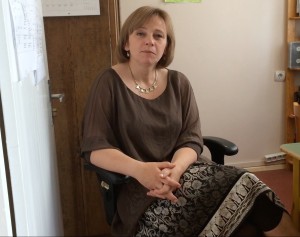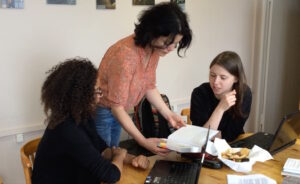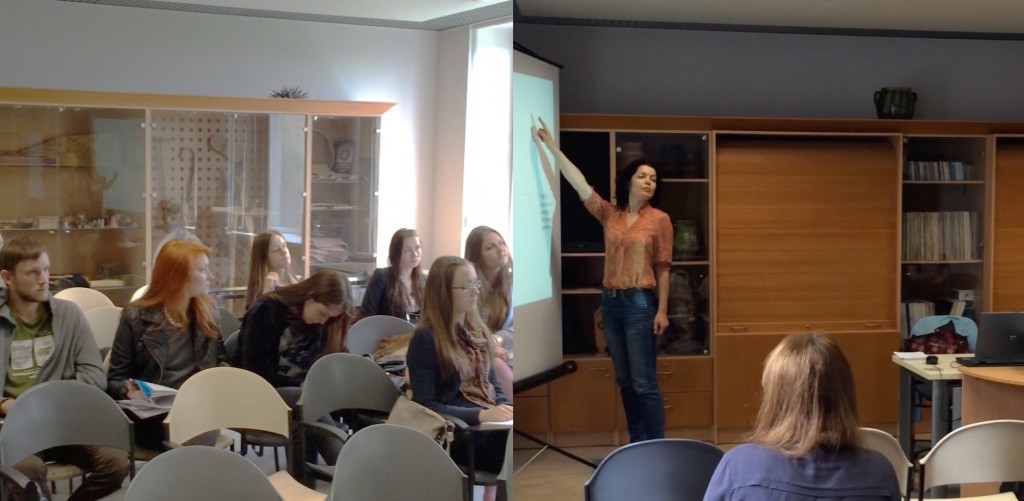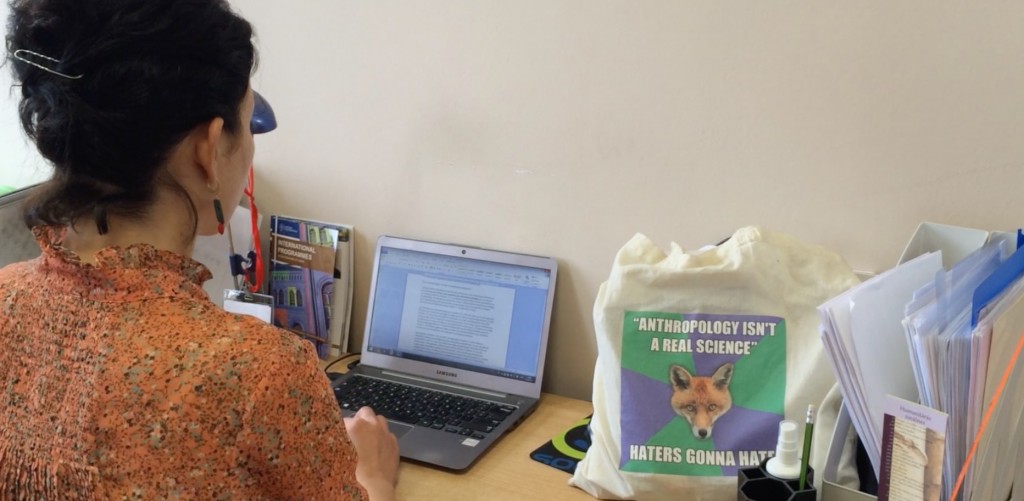Institutional Development Grant Awarded to Baltic Universities

The latest Institutional Development Grant brings together four Baltic-region universities, three of which have already entered into a collaborative framework for the implementation of tertiary level education through establishment of the Baltic Graduate School in 2008. The project will support the establishment of a separate doctoral program in anthropology within the framework of the Baltic Graduate School and thus will also contribute to strengthening the discipline of anthropology in the Baltics. Our Foundation Anthropologist for International Programs, Judy Kried, spoke to Dr. Aivita Putnina, chair of the Department of Anthropology at the University of Latvia, to learn more about the program, the grant, and anthropology in the Baltic region.
First can you tell us a bit about yourself and how you came to be interested in anthropology? Who have been the anthropologists that have most influential in your own personal formation and why?
I first met anthropology at Vytautus Magnus University in Lithuania where I went as a philology exchange student. I had studied general medicine before but soon realised that it offered a limited view. I switched to the humanities. I was so excited to find that there actually was something that I longed for and which encompassed both perspectives. Vytautus Magnus was a brand new university (re-)established by expatriate Lithuanians to help their newly-liberated country. Quite a few of them, including the acting rector Liucija Baskauskas, were anthropologists. I did not get a degree in Anthropology but in Sociology, which I did not study, simply because anthropology was not included in Lithuanian science nomenclature. I am grateful to my undergraduate teachers as they gave me good foundations in anthropology and inspired me to continue my studies. My further studies at the University of Cambridge were made possible by Soros and Chevening grants in 1995. The next year I received a William Wise studentship to continue my studies at doctoral level. Cambridge is an incredibly intense place where you literally can do so much. I cannot name here all the anthropologists – my professors and peers – that I met there. I received enormous support from Professor Marilyn Strathern. Her personality, her style of writing and speaking made her one of the most important teachers I have ever met in my life. In my doctoral research I focussed on childbirth practices in Latvia, capturing and theorising societal change at a family, health care and political level. However, I realised that my informants did not get as much from our encounters as I did. Thus, there was one more consequence of my Cambridge experience. I realised that a sterile academic environment does not attract me and since then I have tried to make anthropology public and engage with the field which I study. I am glad I could partly “repay” my informants in helping to establish home birthing or introducing cancer screening in Latvia based on my research data. This kind of engagement has gone along with the establishment of anthropology in Latvia.
Can you tell us a little about anthropology in the Baltic states of
Estonia, Latvia, and Lithuania? What are the pressing questions and
concerns for the discipline there?

The history of anthropology in the Baltics starts in 19th century when most of the area which now forms the Baltic states was part of the Russian Empire. The word ‘anthropology’ itself was used mostly in the context of physical anthropology. Culture and society were mostly the domain of ethnologists and folklorists, either in the Volkskunde or Soviet traditions, depending on the era. Since the beginning of the 1990s social and cultural anthropology, informed mostly by the British and American schools, started to be taught across the Baltics as separate subjects, partly due to the influx of Western-educated local people. Latvia now has one Bachelors program and two Masters programs and these have developed in the last eight years. Estonia has had a Bachelors and Masters program for about ten years. It is producing PhDs – although these have to be done in another program in Humanities. Lithuania has had some Anthropology courses since the 1990s and PhDs can be done, but in Sociology. Anthropology is not considered as a separate field of science and rigid science classification procedures inherited from the Soviet period influence both the opportunities and funding for the development of anthropology education and research here. We will try to solve this frustrating issue with the establishment of the joint doctoral program.

Is anthropology a subject that attracts students in the Baltic States?
Indeed, and increasingly so. As time as progressed we are now teaching people who have done both their Bachelors and Masters studies in anthropology, who wish to go further. This IDG comes at the right time to meet this need for doctoral students. However, at every level, anthropology attracts people because it offers interesting and alternative perspectives in changing societies. We try to be as publicly visible as possible, getting involved in debates within society at parliamentary, other political, media and general public engagement levels so this encourages students as they can see that what anthropology does can have some impact.

Can you tell us about your department, its specialties and how the
award will help your department as it moves forward?
The department at the University of Latvia is very keen to develop its public role, and has adopted public anthropology as its specialisation within our joint doctoral program as a result. We have staff who have researched in Latvia itself, but also in Germany, Russia, Norway, the UK on themes of morality, violence, gender, medical anthropology, economic anthropology, rhetoric culture, business anthropology among other things. Our partners in Latvia and the other Baltic states add greatly to our joint expertise. This is one of the main benefits of the grant for a doctoral program as students can receive supervision and training in many things, but geographically fairly closely. It also helps create a critical mass in anthropology in the broader region as we will become more visible and attractive to students at home and hopefully abroad. On that last note, it must be said that this is a problem for the Baltic states in general and not only for anthropology. The ‘brain drain’ towards Western Europe is only one aspect of the massive emigration all three countries have faced in the light of EU expansion and financial crises. We hope that more students from this region stay and study here and help to build up a beacon of anthropology in the Baltic states.